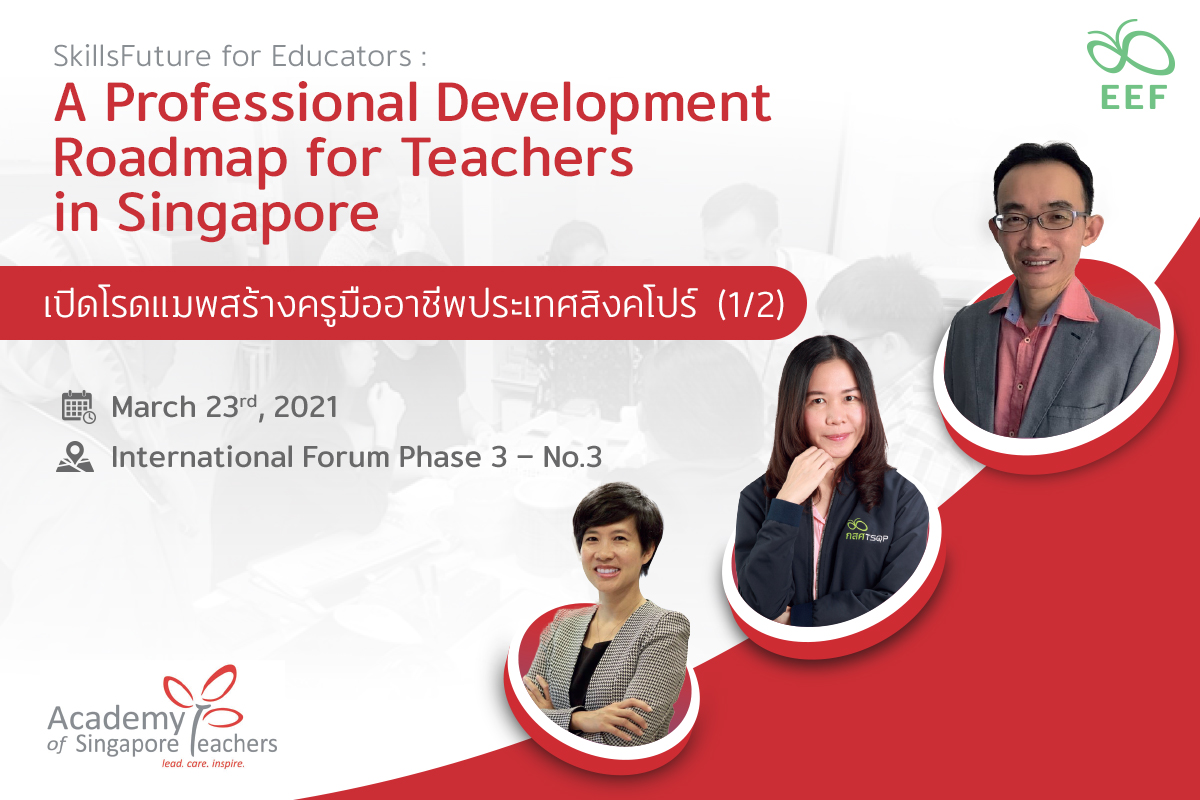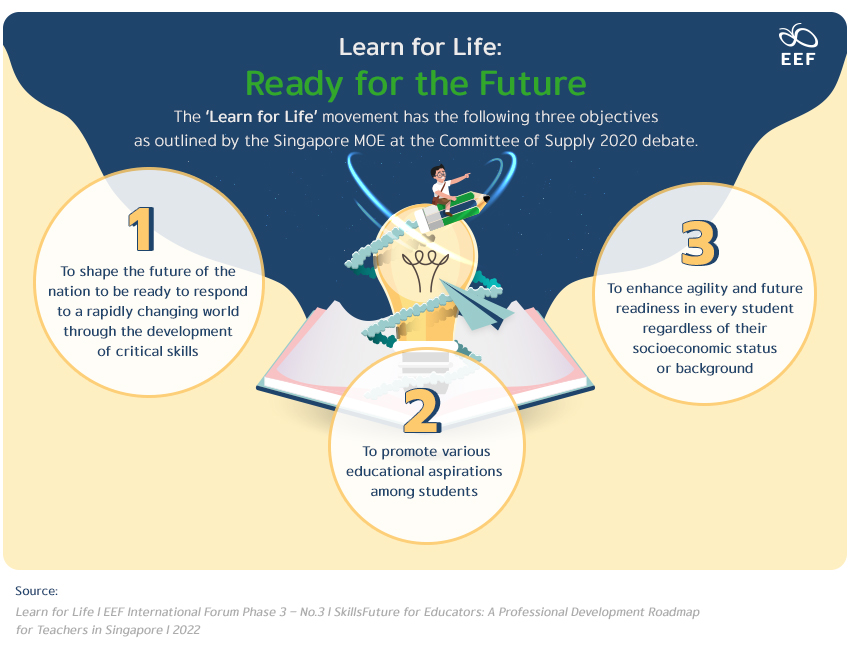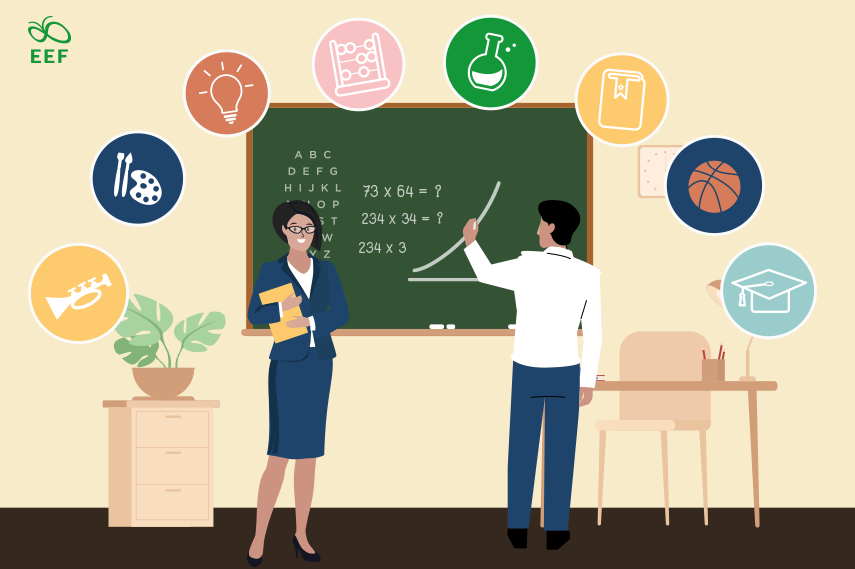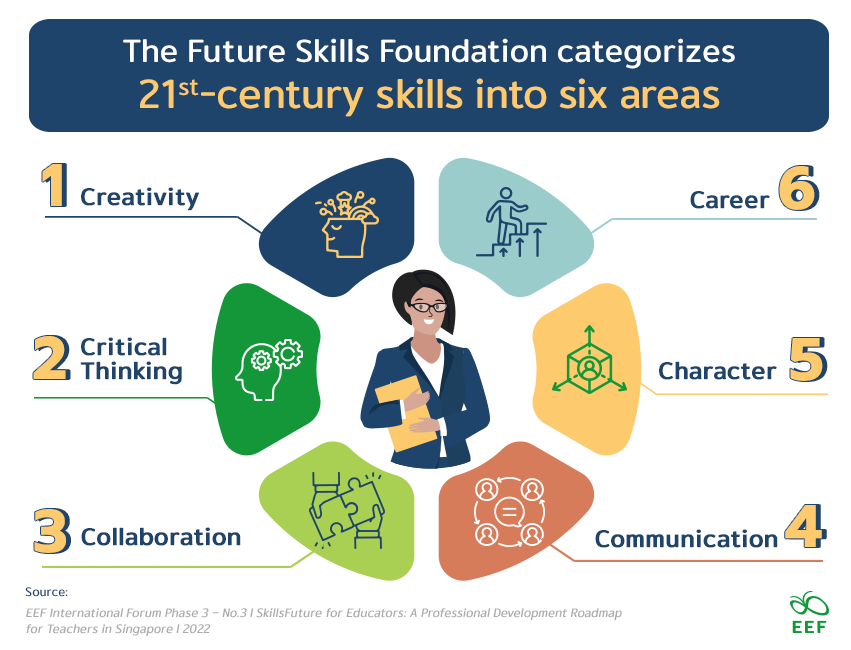
SkillsFuture for Educators: A Professional Development Roadmap for Teachers in Singapore
By: Mr. LEE Yan Kheng Academy of Singapore Teachers Wednesday, March 23, 2022
Globalization and digitalization are changing the way we live, work, interact, and learn. Recognizing that these changes will continue into the future, the Ministry of Education (MOE) of Singapore, one of the countries with the highest education standard in Asia, in collaboration with the Academy of Singapore Teachers, initiated the Learn for Life movement in 2020. This is an educational reform aimed to prepare every student from all social classes equally so they become capable of coping with the future. It is noted, however, that the key to the reform’s success, however, lies with “qualified teachers”. As such, under the Learn for Life movement, the MOE has designed the SkillsFuture for Educators (SFEd) roadmap to ensure professional development for teachers in the belief that teachers are at the core of educational reform and that teacher development will, in turn, lead to sustainable student development.
Learn for Life: Ready for the Future
The ‘Learn for Life’ movement has the following three objectives as outlined by the Singapore MOE at the Committee of Supply 2020 debate:
1) to shape the future of the nation to be ready to respond to a rapidly changing world through the development of critical skills
2) to promote various educational aspirations among students
3) to enhance agility and future readiness in every student regardless of their socioeconomic status or background

The Learn for Life movement mainly focuses on refreshing the curricula to ensure that the knowledge, skills, and values taught remain current and relevant so as to give students possibilities and enable them to set their own educational paths of choice. Another focus is on the Professional Development (PD) Roadmap for teachers – “SkillsFuture for Educators” (SFEd), a program for teachers, the key player in the change. In 2021, Singapore budgeted S$13.62 million, or 3% of the country’s GDP, on education development for the Learn for Life movement.
SkillsFuture for Educators: Strategic Thrust for Teacher Development Towards Professional Excellence
Mr. Ong Ye Kung, former Singapore Minister of Education, spoke at the Committee of Supply 2020 on the importance of teachers to educational system development. “The most important common success factor of all the changes we are making is our teachers. We have the best teaching force in the world to make our educational reform a success. Through SkillsFuture for Educators, we are upgrading their skills and professionalism.”
With such a vision, the Ministry of Education of Singapore has therefore aimed to develop a comprehensive teacher professional development ecosystem in all aspects, with the main objectives of developing quality teachers as professionals capable and ready to create changes, raising teachers’ remuneration so it is more comparable to that of other occupations and more attractive to new graduates, strengthening teachers’ leadership skills, and ensuring that the professional development system supports teachers’ interests both before embarking on and while in the profession.

Based on the information gathered from related surveys by agencies involved, SkillsFuture for Educators, (SFEd), an initiative to improve teachers’ competencies and to encourage lifelong learning, focuses on the following six prioritized areas of practice, with four levels of practice each.
- Assessment Literacy (AL) – Teachers need to have clear purposes in assessment design and strong competencies to diagnose and address learning gaps. Assessment should be designed purposefully and meaningfully to develop students’ intrinsic motivation to learn instead of over-emphasizing academic results.
- Differentiated Instruction (DI) – Teachers should recognize that no two students learn and develop in the same way and thus adapt instructional and assessment strategies to develop students with different strengths, interests, and needs to their full potential.
- Inquiry-based Learning (IBL) – Teachers should empower students to ask meaningful questions and use evidence to address complex problems.
- E-Pedagogy – Teachers need to leverage digital technologies to accelerate and deepen students’ learning, making it more active and personalized with new learning possibilities afforded by technology.
- Character and Citizenship Education (CCE) – Teachers need to fortify students’ mental well-being and equip them with mindsets and skills to thrive in an increasingly complex and demanding environment. Teachers thus need to be equipped with current content and skills and be imbued with the conviction to provide CCE effectively.
- Special Educational Needs (SEN) – Teachers should provide a more inclusive educational environment and better support students with SEN in mainstream schools. Teachers also need a wider repertoire of instructional strategies to support the learning of students with SEN.
Meanwhile, for teachers to benchmark their current practice and focus on their professional development efforts, four levels of practice in each of the six prioritized areas of practice under SFEd are identified:
- Emergent – beginning on his/her journey in this area
- Proficient – broadening and deepening in this area
- Accomplished – skillful and adaptive in this area
- Leading – leading others effectively in this area
Real-world Application of SFEd
The SFEd approach can be applied at both individual and organizational levels. At the individual level, teachers can use SFEd as a model to identify what skills their classroom performance is relevant to and what skills they want to develop further. Then a professional development plan can be developed to focus on the skills that are of particular interest to them. After that, they can determine the target skill levels they want to achieve and attend training in accordance with the established plans. At the organizational level, the teacher’s affiliated school or training organization can understand the teachers’ individual needs and plan training and skills assessment for them accordingly. Teachers’ professional development can thus be geared properly towards their individual goals as desired.
Professional development for teachers in Singapore is carried out through the teacher support system collaborated by both the public and private sectors. At the core is the Academy of Singapore Teachers, together with the Singapore Ministry of Education, the Civil Service College, the National Institute of Education, and external professional development providers. One example of the application of SFEd is the design of professional and continuing education curriculum by the National Institute of Education, where part of the content is the lesson entitled “Education and Learning Assessment: Theory, Barriers, and Problems.” It aims at developing assessment literacy for teachers. Teachers can apply for, attend courses, and complete self-assessments online.
—————————————————————————-
Lead Discussion
By: Dr. Pornnubpan Wongtrakul, Future Skills Foundation, Thailand
In the context of Thailand, the teacher professional development system should be designed to align with the culture of the student population in each locality and integrated with 21st-century skills enhancement, the central focus of today’s educational world.
The Future Skills Foundation categorizes 21st-century skills into six areas:
1) Creativity
2) Critical Thinking
3) Collaboration
4) Communication
5) Character
6) Career

The Future Skills Foundation’s guidelines suggest the Teacher Development Curriculum design follows 4 phases:
1) conduct a survey of teacher needs assessment to identify the skill sets training required
2) design training courses to meet the teachers’ needs
3) organize training workshops
4) monitor and support the skills implementation process in classrooms
So far, the Foundation’s training has placed special emphasis on enhancing psychology skills in teachers as they need to form a good relationship with students in order to learn of their problems and obstacles that bar them from learning further and help resolve the issues. An important factor in teacher training course development is the exchange of ideas among all parties involved at all stages to create mutual understanding and identify problems and then resolve them effectively in time.
Watch EEF Int’Forum Record:
Part1: https://youtu.be/qn0sLgG7sFk
Part2: https://youtu.be/k3yctk1v6bI
Source:
EEF International Forum Phase 3 – No.3 l SkillsFuture for Educators: A Professional Development Roadmap for Teachers in Singapore l 2022

